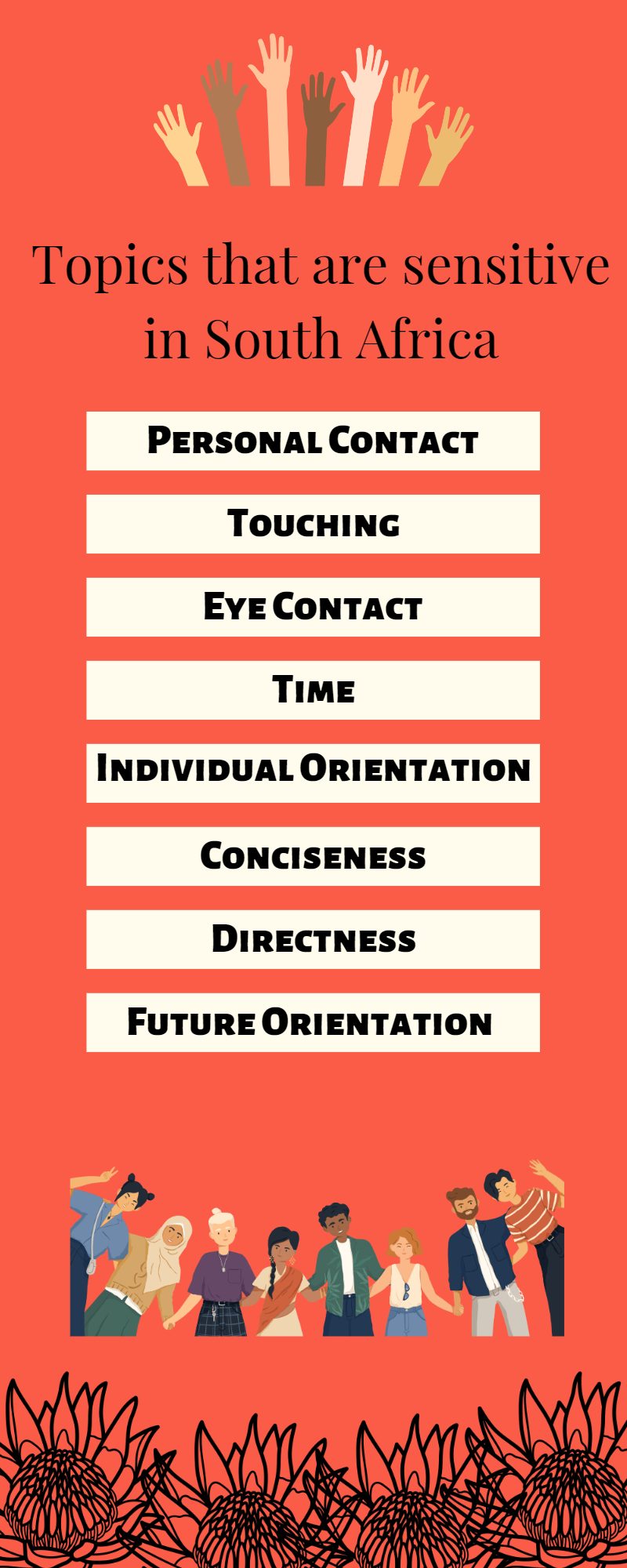Different cultures have different rules about what is right or wrong; what is acceptable or not.
People from the same culture share values, beliefs, certain rules and language. People are subjected to other cultures on a daily basis because the world is shrinking due to instant global communication. People need to be informed about the different cultures that they are dealing with. South Africa itself has a diverse population consisting of different cultures and ethnic groups. Each group has its own uniqueness and cultural characteristics although we share some common characteristics such as geography and laws.

According to Cleary, 2003, some of the areas that communicators in South Africa should be sensitive about are:
Personal contact: Some communities prefer closer personal contact than others. Standing too close to people may offend them.
Touching: Touching may be the norm in some cultures while others may regard it as too intimate.
Eye contact: Rules about eye contact also differ in cultures. Children may be regarded as impolite if they look a parent in the eye and in another culture avoiding eye contact may be seen as an acknowledgement of guilt.
Time: In Western cultures, time is especially important. Being on time, starting on time, and meeting deadlines are valued attributes. Some cultures are less precise about time – more or less is good enough.
Individual orientation: In some cultures, more value is placed on individual achievement and in others value lies in participation in the community.
Conciseness: In some cultures, conciseness is very important. Others prefer a slower and more dignified mode of interaction.
Directness: Some cultures perceive directness as impolite and value a subtler approach.
Future orientation: For some groups, the prospect of a better tomorrow is a strong motivating force. They value youth as holding the key to the future. Other cultures see life as part of an endless, cyclical process form birth to death. They are oriented towards the past and the here and now, rather than the future. They have great respect for age and for ancestral spirits.
Barriers to intercultural communication may arise if people view their own culture as superior to that of others and regard the other culture as wrong.
Verbal and nonverbal codes that differ in cultures may also lead to communication barriers.
Cultural stereotyping is also one of the pitfalls of intercultural communication e.g., all white people are racist; black people are always late; all Americans are loud talkers, etc.
In South Africa intercultural contact mostly takes place in organisations.
Organisations, therefore, have a very important role to play in influencing behaviour and developing positive relationships.